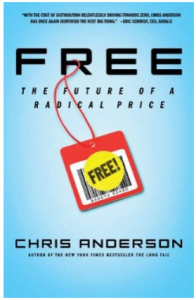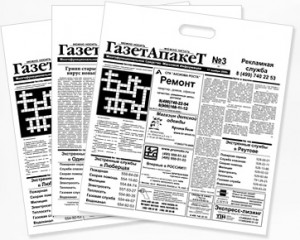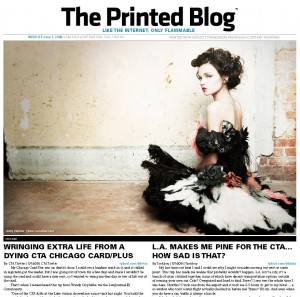Back in January, we told you about The Printed Blog, a venture by serial entrepeneur Josh Karp that sought to flip the online publishing model by delivering blogs in print. The idea was to take the best entries by local bloggers and rush them into print for consumption by busy commuters, whom advertisers would want to reach. “If his idea reaches its full potential, he’ll have hyper-local twice-daily editions in thousands of communities around the US,” we wrote. “Chicago alone could support 50 localized Printed Blogs.”
Well, it turns out Chicago could barely support even one Printed Blog for more than a few issues. Josh Karp shut his doors last week, having poured more than $100,000 of his own money into a venture that barely got off the ground. The Printed Blog published 16 issues in seven regions and it was a pretty interesting read. Its slogan – “Like the Internet, only flammable” – betrayed its playful nature and the website is the essence of Web 2.0 shareability. The venture was a victim of a harsh economy, in part, but also the reality that people apparently don’t want to read 13-hour-old blog entries about the White Sox in print, as the Christian Science Monitor account points out. It was a long shot that drew skepticism from the start, but it generated huge publicity for Karp, who we hope will quickly find a more successful outlet for his ample creativity.
Karp posted several closing entries on his blog, including this one about the lessons he learned from the venture. Among the half-dozen he lists are this one: “Instead of focusing on one thing – revenue – on a small enough scale to prove our model, I decided to try and publish the paper in Chicago, San Francisco, New York, and Los Angeles… I got carried away, and we spread ourselves too thin too fast.” We’re going to be seeing a lot of entrepreneurs try to fill the void left by dying newspapers in the coming years and they would do well to read Karp’s advice. Or even bring him on as a publisher.
The Flap Over Free
 We don’t know if you’ve followed Wired editor Chris Anderson’s latest book, Free: The Future of a Radical Price, but the premise is worthy of attention from publishers. Anderson’s premise is that the Internet has created a new competitive dynamic that is relentlessly forcing the price of all things digital – and some things physical – toward zero.
We don’t know if you’ve followed Wired editor Chris Anderson’s latest book, Free: The Future of a Radical Price, but the premise is worthy of attention from publishers. Anderson’s premise is that the Internet has created a new competitive dynamic that is relentlessly forcing the price of all things digital – and some things physical – toward zero.
Software that once commanded six-figure license fees is now free. The entertainment industry has all but abandoned efforts to copy-protect music. Artists now give away music and make money on concerts.
Anderson further argues that other businesses may be pulled into the low-cost business model orbit. T-shirts are basically free, but the cost of a Major League Baseball logo is $30. Casinos give away flights and hotel rooms and make it back on gambling. Ryan Air has staged promotions in which its flights are given away for free while revenue is derived from value-added services like luxury meals or gambling.
This has big implications not just for publishers but for anyone whose value is predicated upon delivering content. Anderson’s premise is controversial and scary to many people. Others simply don’t buy it, including Malcolm Gladwell, who penned a well-argued review in The New Yorker last week. Gladwell points out that Anderson’s argument ignores the value – and cost- of the distribution network. He notes that YouTube makes most of its money from advertising sold against professional programming that it buys from entertainment companies. Thus, the company’s supposedly free content model is really underwritten by real cash money.
Anderson fires back with a respectful rejoinder, telling the story of GeekDad, a blog he started a few years ago that is now run by a largely volunteer workforce. These writers do a heckuva job delivering a product that would have formerly required an expensive publishing infrastructure, and they do it for personal fulfillment, Anderson says. He suggests that this is where the news model is going: “I can imagine far more subjects that are better handled by well-coordinated amateurs than those that can support professional journalists. My business card says ‘Editor in Chief’, but if one of my children follows in my footsteps, I suspect their business card will say ‘Community Manager.’ Both can be good careers.”
True to form, Anderson is giving away digital copies of Free (you can read the whole thing here) but charging for the book. Publicity will no doubt help sustain his five-digit speaking fee. That’s further support for the book’s premise. It isn’t helping his magazine, though, which is among the worst-performing print magazines of 2009. Free can apparently only get you so far.
Miscellany
The Cincinnati Enquirer appears to be shouldering more than its share in the latest round of Gannett Co. layoffs. The paper has laid off 101 people out of a total staff estimated at between 800 and 920. It has also laid off the entire staff of CinWeekly, companion publication aimed at young readers. Meanwhile, the Detroit Free Press is escaping the axe entirely, but that’s because it and its JOA partner the Detroit News have already cut 17% of their combined workforces since December.
More than half of business communicators surveyed by Ragan Communications think Twitter is a fad that will crest and decline as people run out of interesting things to say. The 28% of respondents who have a microblogging policy in place credit it with improving employee engagement, helping customer service, building reputation and boosting website traffic. Another 40% have no microblogging plan in place. EMarketer remarks on Twitter mania, noting that when people start attributing world-changing characteristics to a new technology, it’s time to start worrying.
The New York Times Co. has extended until late this month the deadine for bids on the Boston Globe. The move is intended to give prospective bidders (three at the moment) time to see if advertising revenue has leveled off and whether the Newspaper Guild approves a tentative contract containing $20 million in concessions. Meanwhile, a lively discussion is going on within the Guild ranks over whether to approve the proposed deal.
A federal judge has cleared the way for Journal Register Co. to emerge from bankruptcy with 90% of the company in the hands of its debtors. The company’s reorganization plan had been held up pending resolution of a dispute over a $1.3 million “shutdown” bonus, which will pay some senior managers to lay off staff and shut down publications. Opponents argued that the bonuses are excessive and unwarranted, but Judge Allan L. Gropper ruled that the fact that the fact that the plan was approved by secured lenders and the company’s creditors committee justified its validity. Under the reorganization plan, JRC gives up 90% of the company in exchange for $225 million from lenders.
And Finally…
 The comedy team of Bob & Ray once had a skit about an idea called edible food packaging. It turns out the notion may not have been so far-fetched, as publishers are trying every possible idea to make their print products palatable. In Moscow, the the GazetaPacket is delivering news, crosswords, recipes and advertising on printed paper bags. It’s been running since last August. Editors Weblog tell of other ideas, like Bill Shein’s suggestions for edible paper, martini-flavored ink and naked women on the cover. That last one’s been tried and apparently doesn’t work, but you know what they say about if at first you don’t succeed…
The comedy team of Bob & Ray once had a skit about an idea called edible food packaging. It turns out the notion may not have been so far-fetched, as publishers are trying every possible idea to make their print products palatable. In Moscow, the the GazetaPacket is delivering news, crosswords, recipes and advertising on printed paper bags. It’s been running since last August. Editors Weblog tell of other ideas, like Bill Shein’s suggestions for edible paper, martini-flavored ink and naked women on the cover. That last one’s been tried and apparently doesn’t work, but you know what they say about if at first you don’t succeed…
Comments
This entry was posted on Monday, July 13th, 2009 at 5:13 am and is filed under Facebook, Fake News, Google, Hyper-local, Solutions. You can follow any responses to this entry through the RSS 2.0 feed. Both comments and pings are currently closed.




[…] could not tell from the mpegs. After looking at it carefully i noticed it had no credits at all. R.I.P. The Printed Blog – newspaperdeathwatch.com 07/13/2009 Back in January, we told you about The Printed Blog , […]
Boston NOW was a lot like The Printed Blog. It combined regular, staff-written news with blog posts from local bloggers. It folded.
Nice coverage of Chris Anderson’s latest book. I’d just like to add that I don’t think the economics of “free” can help the production of serious journalism. The “free rider” problem interferes with the payment for the production (as opposed to the distribution) of public goods like serious news. Please see my additional comments in my blog, solution journalism: http://solutionjournalism.com/2009/07/13/can-free-help-serious-journalism/
[…] Paul Gillin’s comments, “The Flap Over Free” for additional […]
I had a similar idea to draw interest in the newspapers I sell from the larger metro area near my little town. Wasco California has a weekly of it’s own with no internet presence. I sell the Bakersfield Californian from nearby Bakersfield. They sponsor Knight News Challenge project printcasting.com . The idea is to do just what Karp has done but on the really micro level. I started Wascotopia.com for free on ning. I got some locals to post stories and a couple of advertisers are interested in covering the printing cost. Even if it proves popular all I expect is enough revenue to pay the printing. If you have to buy a copy of the Californian in order to read it or see your own words in print I will come out ahead.
It’s difficult to tell what will happen. It could legitimize the website for the older fuddy duddier of the population. At that point I could sell ads on the site. Synergy is the unfortunate marketing buzz term for the magic that may develop. After trying to motivate the early adopters to blog and respond to blogs. I am left with a cynical feeling that except for the tiny percent of the population who already use web 2.0 AND participate passive forms of entertainment and info gathering will continue to dominate and grow.
Brian’s idea has a better chance of success than The Printed Blog. Note that one of Josh Karp’s items of advice was not to spread yourself too thin. His delusious of grandeur – aided in large part by third-party enthusiasm for the idea – contributed to over-expansion, which raised the stakes for success. Bootstrapping lets an idea acquire natural momentum, and those are the ones that have the greatest long-term value.
[…] could not tell from the mpegs. After looking at it carefully i noticed it had no credits at all. R.I.P. The Printed Blog – newspaperdeathwatch.com 07/13/2009 Back in January, we told you about The Printed Blog , […]
Dear Brian,
the “older fuddy duddier” people created the internet, went to the moon and won the nuclear arms race.
We came after our parents, who just went and won WWII.
What have you done lately?
Oh yeah, screwed the economy and our retirement savings by betting the farm on things you didn’t understand. That’s your legacy. We went to the moon. You went to the dogs. Don’t you feel great?
Printing blogs is like being “a little pregnant.” Why the hell would I want a piece of paper to tell me, days late, and charging somebody money, what I could get for free, as fast as it happened, and to which I could reply on top of that.
This was a dumb dumb idea…
I downloaded the audiobook (which was f.r.e.e.) and bought the hard cover too (which cost me like $25.00 with shipping,) and I must say he’s right, not helpful, not in the least, but he _is_ right.
Now I have the dual problem of knowing somebody’s swinging a shovel at my head, (and hoping to bury me with it by making some form of game and enticing the neighborhood children to bury my corpse, [for free of course,]) while trying to figure out which way to duck.
The tough part of this is just that; figuring out how to monetize what I’m currently giving away for free on my podcasts, without begging for charity.
I think I’m going to go the way of the ‘free’-mium and keep giving away my shorter shows while working on some longer format ones that are for sale on a password protected site on an exclusive basis.
The free-miums will of course feature an ad for the paid site.
MSB,
Just a couple of points.
Those people who now still don’t use the internet are not the same people who invented it. The same defense department that did not “win” the arms race did create it from the same run away paranoia that drove the cold war. No former NASA staffers live in Wasco to my knowledge. Yes my parents did win WWII, thanks for noticing.
I personally have not done anything worthy since exiting the wellness industry.
I have not participated in the collapse of our economy. I have been decrying the financial industry since Regan deregulated them in the 80s. I believe that was when he was still chasing “Reds” and taking credit for the collapse of an economic system that was self destructing from it’s own weight.
I must agree that the printed blog I have planned is a bit foolish. I do, however, sell hundreds of newspapers everyday with words that could be gotten from free on-line.
Ink on papers is and will be for the foreseeable future a much nicer read.
I reiterate my other notion that the march away from having to think is wave of the future.
People want something “other” than the news (which as you say, and I completely agree with, is available on-line,) when they read a paper.
I bet you could be carrying newspapers with headlines crying out “Our Boy Lindie Made It!” and it would be a perfectly good way to make money.
There are hundreds of noteworthy events from history that embody so much more than mere words can ever capture, but capture the words with some pictures and have some people giving some historic perspective surrounding the event and you’ve got a great business model there.
People read newspapers for what the paper brings far more that just the words and images in the news.
But stop treating it as an efficient delivery mechanism. Its NOT.
A newspaper might be a nicer read, but it does not matter that the ‘news’ is from 70 years ago.